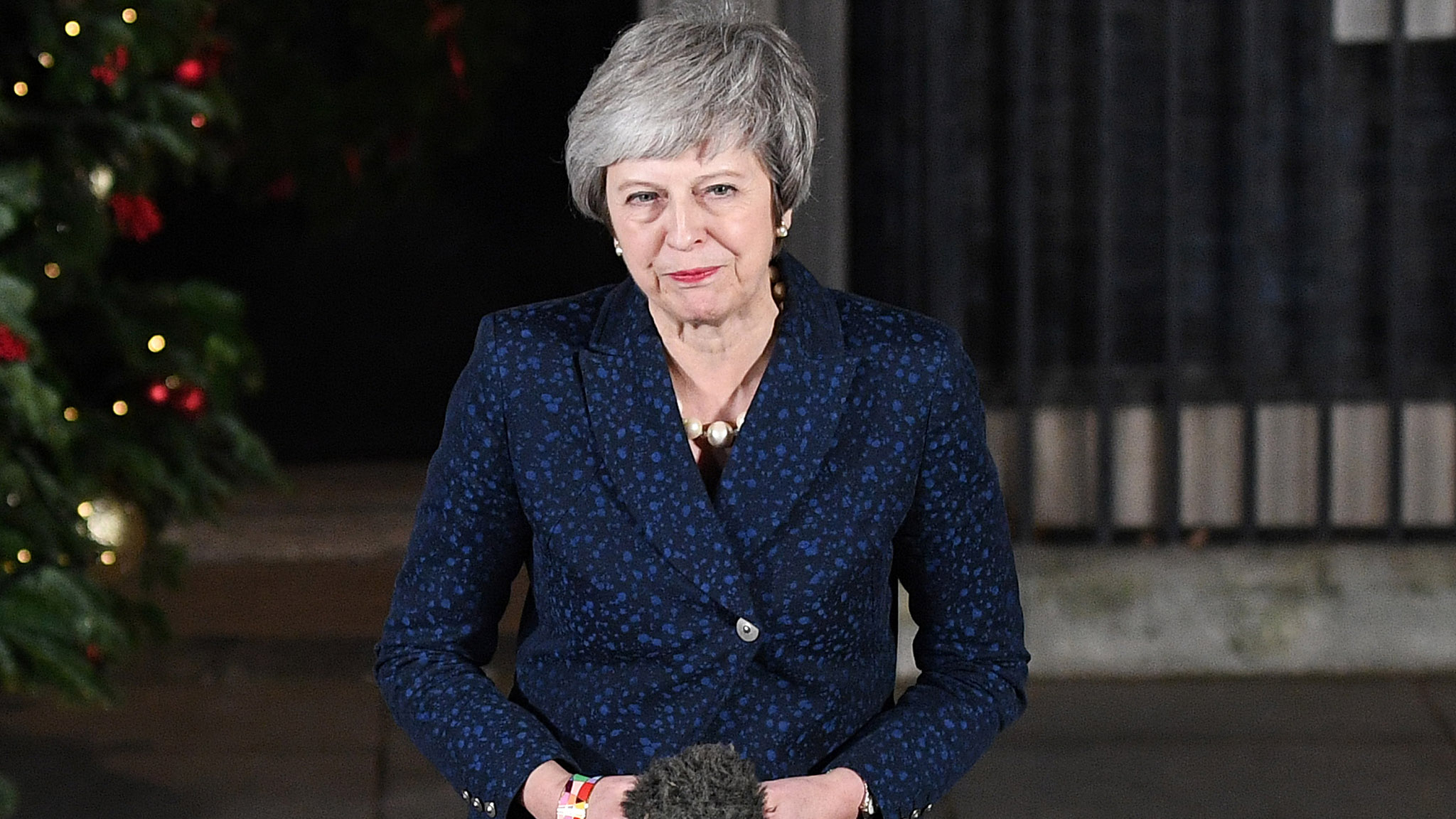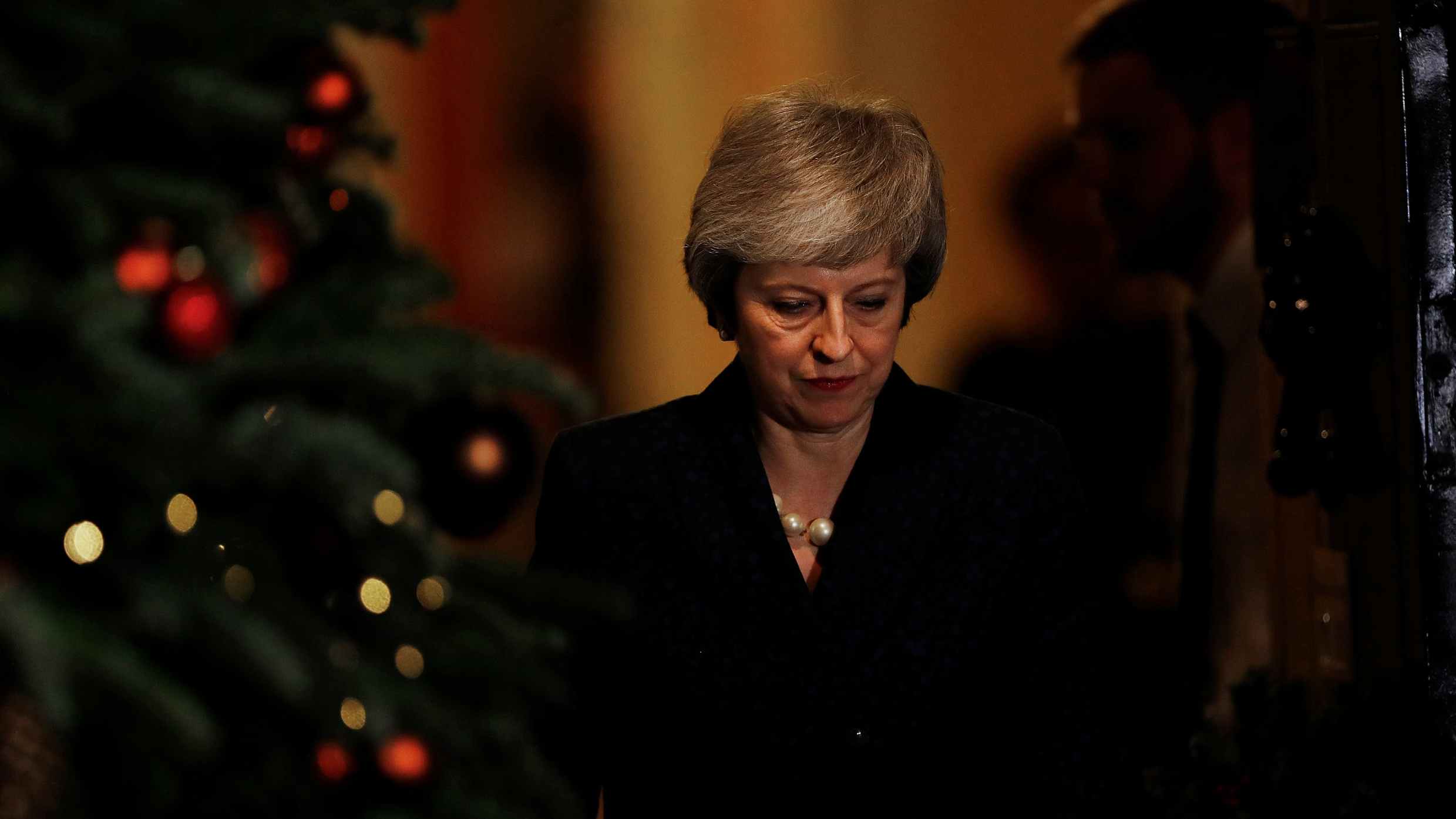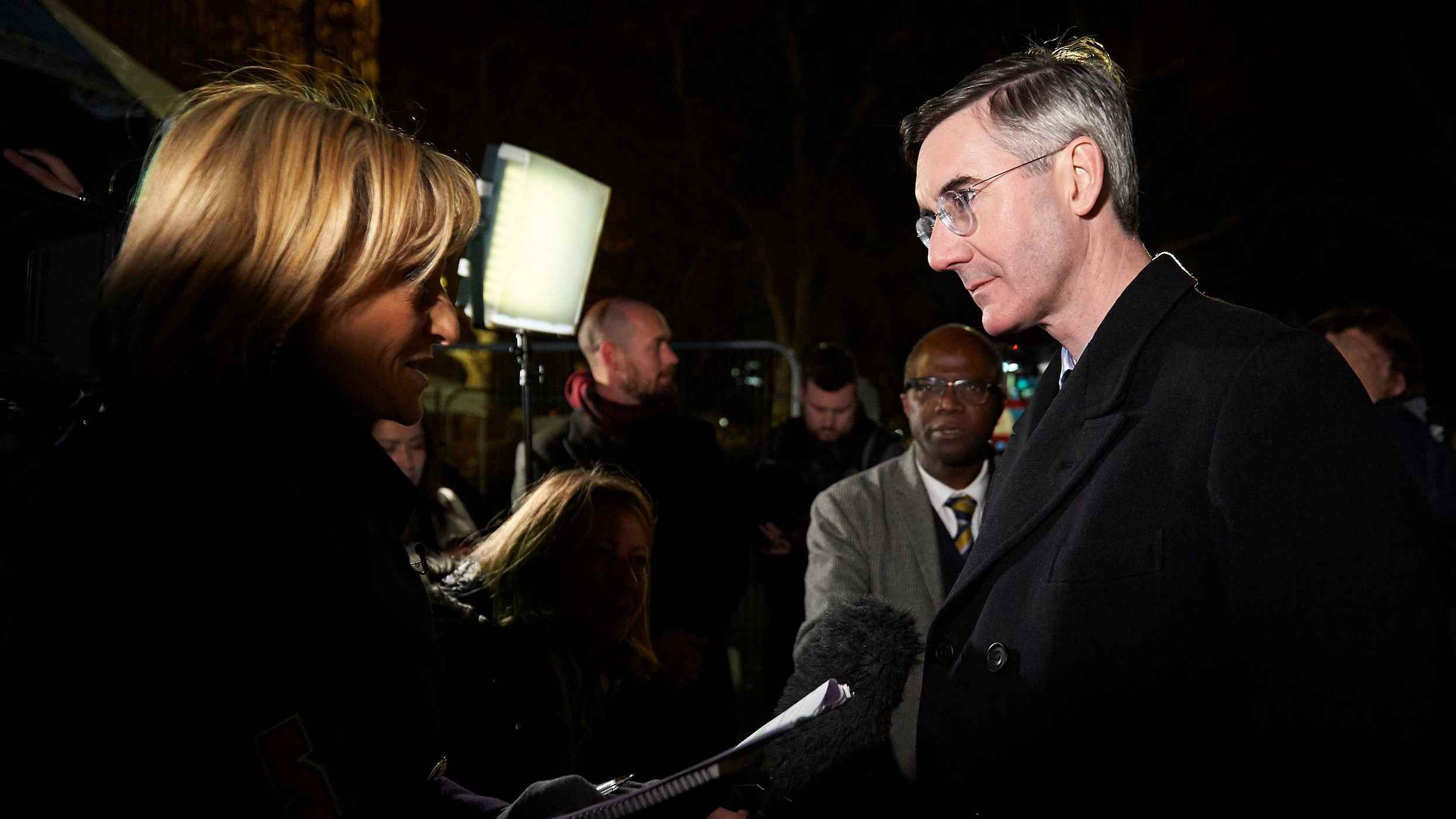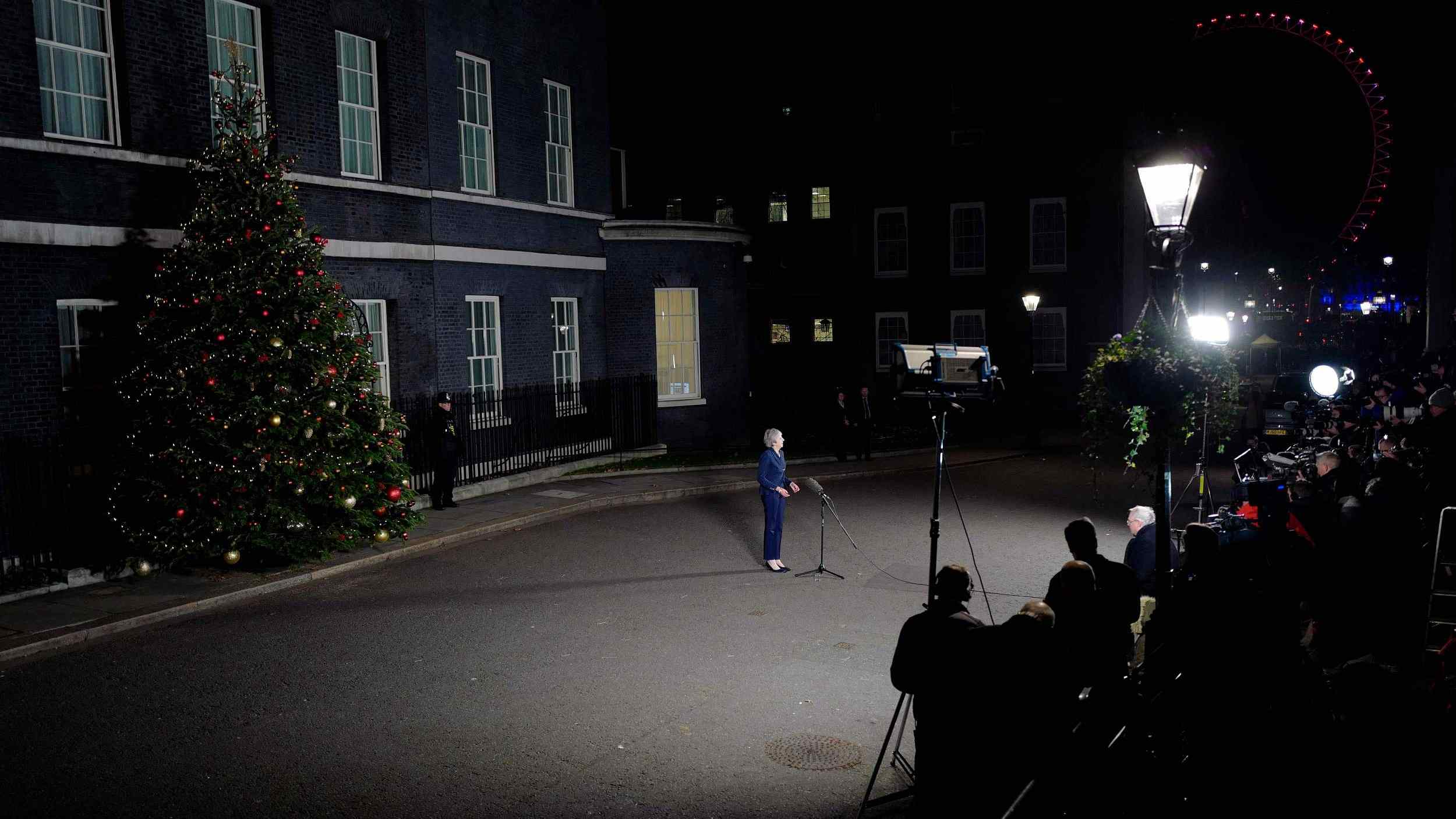01:55

British Prime Minister Theresa May has survived a confidence vote in her leadership of the Conservative Party and heads to Brussels on Thursday in an attempt to win fresh concessions on her Brexit deal.
May secured the support of 200 Conservative MPs in Wednesday evening's confidence vote, but with 117 opposing her leadership, it was far from a comprehensive victory.
Under party rules, another leadership challenge cannot be triggered for 12 months, but the 83-vote win gives May little respite, and her opponents continued their criticisms on Wednesday evening.

Britain's Prime Minister Theresa May prepares to speak outside 10 Downing Street in London, December 12, 2018. /VCG Photo
Britain's Prime Minister Theresa May prepares to speak outside 10 Downing Street in London, December 12, 2018. /VCG Photo
The party split – with more than one in three of her own MPs calling for her to depart – is an indication of the difficulties the prime minister still has in pushing her Brexit deal through parliament without significant changes.
Leading Brexiteer Jacob Rees-Mogg described the result as "terrible" for the prime minister and urged her to resign. Other Conservatives criticized the grouping which pushed for the confidence vote and called for May to be given support in her bid to find a solution to the Brexit deadlock.

Conservative MP Jacob Rees-Mogg speaks to the media next in London after Britain's Prime Minister Theresa May won a confidence vote on December 12, 2018. /VCG Photo
Conservative MP Jacob Rees-Mogg speaks to the media next in London after Britain's Prime Minister Theresa May won a confidence vote on December 12, 2018. /VCG Photo
In a speech to MPs before the secret ballot was held, May indicated that she would not lead the party into the next scheduled general election in 2022. But in the current uncertain circumstances, an earlier poll cannot be ruled out.
The win for May limits the options of the hardline Brexit-backing MPs, who could be tempted to back a no-confidence vote in the government – a separate procedure that could lead to an election – if called by the opposition Labour Party.
Labour has said it is willing to put forward a no-confidence motion when there is a realistic chance of winning it, most likely if the Brexit deal is voted down by parliament.
May pulled a vote on the agreement struck with the EU on Monday, accepting a loss by a "significant margin" was inevitable, in a move that dismayed many of her MPs and triggered the challenge to her leadership.

Britain's Prime Minister Theresa May makes a statement outside 10 Downing Street, London after winning a confidence vote on December 12, 2018. /VCG Photo
Britain's Prime Minister Theresa May makes a statement outside 10 Downing Street, London after winning a confidence vote on December 12, 2018. /VCG Photo
When the parliamentary vote is held will depend on May's progress in negotiations with the EU, which will continue in Brussels on Thursday when leaders gather for a two-day European Council meeting.
Unless May can win a major concession from the EU on the contentious Irish border "backstop" issue, however, the parliamentary arithmetic over the deal will not have changed.
"I have heard what the House of Commons said about the Northern Ireland backstop, and when I go to the European Council tomorrow I will be seeking legal and political assurances that will assuage the concerns that members of Parliament have on that issue," the prime minister said after winning the ballot on Wednesday evening.
The "backstop" arrangement is designed to ensure there is no hard border between northern and southern Ireland after Brexit. It is essentially a shared customs area and would only come into force if no UK-EU trade deal was agreed by December 2020. But many MPs fear it would create a separate status for Northern Ireland and argue that given a mutual agreement would be needed to end it, the UK could be held hostage in negotiations with Brussels.
EU leaders have repeatedly said the deal cannot be amended, but there is speculation that an addendum to the agreement could be negotiated. A draft EU document on Brexit prepared for the European Council meeting includes only the possibility the bloc would look into giving more assurances to Britain over the backstop, diplomatic sources told Reuters.
A more substantial commitment would be needed to win over euroskeptic Conservative MPs and the Democratic Unionist Party, which props up her government. MPs from opposition parties remain overwhelmingly opposed to the Brexit deal.
The calculation of the prime minister's team appears to be still building pressure on MPs and the EU, with the risk of a "no deal" Brexit growing as the clock ticks towards the March 29, 2019 exit date.
A majority of MPs oppose leaving the bloc without a deal – a result economists warn could be disastrous – and such a scenario would also be damaging for the EU.





